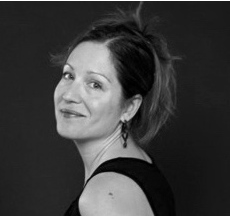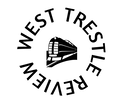|
11/22/2015 1 Comment 11.22.15: Sonia Greenfield I encountered Sonia Greenfield for the first time at a reading of ekphrastic poems that I participated in at the Riverside Art Museum last August. I was bowled over by her “Nafsicrate Considers Bruegel’s Famous Work”: I told Daedalus to watch him, goddammit, so now here I am waiting for my son to breaststroke home to me, held up on fingers of green foam. Waiting past the rise and fall of Rome through to Pieter’s brushwork which rendered the sun like a lemon on fire . . . . I loved the point of view in this poem, the implicit war between the parents, the portrait of infinite, focused and pragmatic mother-love which maintains even self-deceiving hope. And I promptly bought Sonia Greenfield's first book, Boy with a Halo at the Farmer's Market, winner of the 2014 Codhill Poetry Award. Greenfield's fierce and witty work is highly inventive, and often other-directed, as in the title poem, which imagines the later life of this boy with a "metal halo" "bolted into his skull"—a life in which a broken neck turns out to have been "a lucky break." She re-invents myth, again, in "Afternoon with Redón," another ekphrastic poem, in which Galatea is not the victim of Polyphemus, but "like the heartbreaker, / the boy-teaser, the self-pleaser / who only thought to have some fun," and he "like a monster-hearted boy before he buys / his gun." In "Milk Carton Kids," she invents the places and ways children can disappear forever, not even to be found "stuffed / in a trunk" or "dragged from a lake." She asks how "thoughts and prayers go out" in response to a disaster ("Like a loon's / song transmitted by Morse?"), as when "the first plane hit" in 2001. Her metaphors and similes are fresh and exact. "At night bugs came out / and flicked their shells open // like switchblades." ("Pestilence"). They are also compressed, deft, and unsentimental; in “Sago Mine, West Virginia”—about the explosion that killed twelve of thirteen miners—the coal is described as “a black ribbon pinned to / a lapel.” Greenfield's is often a dire, threatening world seen with a cold, clear eye, a world in which "schools are ever on lockdown behind / chain-link where the mothers cling" ("School Rules"), yet there can be sly amusement in her clear-eyed inventiveness. In "A Vision in Stride Rite," the baby throws his sandal out of the pram, and eats champagne grapes "as he surveys his subjects." The narrator (echoing Allen Ginsberg?), concludes: Here he is, Baby Bacchus, making the most of privilege as his servant puts her shoulder to the wheel and shoves on up the hill. I admire the strategies of so many of these poems, the way the poet manages their "plots,” or turns them multiple times. In "Morning Coffee with Chagall," she describes a Chagall painting on a coffee cup, a painting in which The bride and groom lift off as if their feet were filled with helium, a bouquet of peonies in her hands, lips locked as if they're inflating each other like elegant balloons . . . The poem only turns neatly toward the self in the third line from the end, when the pronoun "my" deftly enters: Held aloft, alive-- before their feet touch the ground, before dishes need to be done. Before the cup is drained, rinsed and shut away in the hot spray of my top-of-the-line machine, caught flying before the gravity of domestic routine. I look forward to further work from the accomplished Sonia Greenfield. -- Judy Kronenfeld
1 Comment
|
Powered by Women

 RSS Feed
RSS Feed